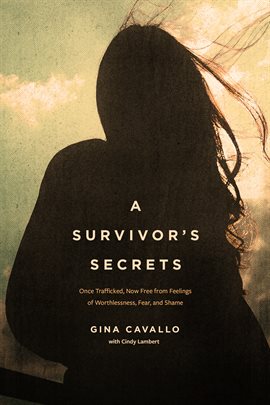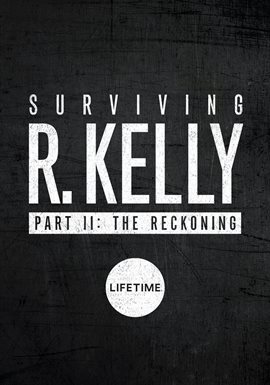Human Trafficking: Steinem Sisters Collection Talking Circle
Posted on August 9, 2025
by Melissa L
What is human trafficking, and how does it affect Toledo and the surrounding area? How does trafficking impact women and feminism?
Join us for a discussion on (Tu) Aug. 12 at 6:30 p.m. at the Oregon Branch. Anna Schramm of the Human Trafficking and Social Justice Institute at the University of Toledo will start our discussion. Below, Anna has answered some questions and shared her experience working with survivors of human trafficking.
What is your name, and what is your interest in human trafficking?
My name is Anna Schramm, and I was born and raised in Toledo. I first learned about human trafficking in my senior year of high school at a youth conference. I learned that human trafficking was happening in my own country, state, and even my own city. This was not a distant, international problem that you see in movies or read about on the news. This was happening where I lived. I felt that the best way for me to be a part of the anti-trafficking fight was to pursue a degree in social work. After earning my Bachelor of Social Work (BSW) from Anderson University in Indiana, I moved back home to Toledo to get my Master of Social Work (MSW) degree from The University of Toledo. During my time there, I interned at the Human Trafficking and Social Justice Institute, led by the world-renowned Dr. Celia Williamson. Among many other valuable lessons, Dr. Williamson instilled in me the value of macro-level social work and the importance of driving systemic change through education and research. I wanted to use my knowledge, education, and passion to combat human trafficking.
Can you tell us more about the Human Trafficking and Social Justice Institute?
After my internship ended, I was honored to be hired on as an employee at the Human Trafficking and Social Justice Institute. The “Institute” was established in 2014 with a mission to respond to human trafficking and social justice through teaching, research, and collaborative engagement. The Institute has several programs it runs that align with our mission. Specifically, the two projects that I coordinate are the International Human Trafficking & Social Justice (IHTSJ) Conference and the Global Association of Human Trafficking Scholars (GAHTS).
This year marks my eighth year planning the IHTSJ Conference, the world’s oldest and largest academic conference on human trafficking in the world, founded by Dr. Williamson in 2004. The mission of the IHTSJ Conference is to unite the global community to learn, connect, and collaborate to combat human trafficking and promote social justice. Now in its 22nd year, the IHTSJ Conference has welcomed tens of thousands of attendees from all 50 U.S. states and from 60 countries. After the COVID-19 pandemic, the conference has remained virtual the last five years, which has allowed more individuals from around the world (particularly from developing countries) to participate in the conference.
For the last six years, I have also coordinated GAHTS, whose mission is to respond to human trafficking by moving the knowledge base forward. GAHTS has grown to include over 800 members from 47 states and 55 countries. I work with researchers from all around the world, including lived-experience expert scholars, to provide valuable resources and facilitate networking and collaboration on future research initiatives.
How have you seen the anti-human trafficking community change during your career? What has been positive? What do you see that still needs to shift? What do you hope to see change in the future regarding the discussion of human trafficking?
There have been a lot of changes in the anti-human trafficking field throughout the last five to 10 years, as more research, programming, and funding are being directed to these efforts. One of the biggest changes I have seen since I first started working in the field is the importance and inclusion of survivor voices in all aspects of this work. Even five to 10 years ago, the focus was on “rescuing” and “restoring” victims of trafficking, with the emphasis on service providers or law enforcement being the professionals who come in to save victims, connect them to services, and give them a better life.
As with other movements, human trafficking survivors started adopting the phrase “nothing about us without us” and began insisting that their voices and expertise were just as important as any professional. Now, it is standard best practice to include survivors on planning committees, advisory boards, etc. and to compensate them appropriately so as not to re-exploit them.
Another change I have seen in the anti-trafficking movement is the acknowledgement of other forms of trafficking outside of female sex trafficking. Sex trafficking of women and girls has typically been what is covered in the media and what funding and programming focuses on. In the last five years, more emphasis has been put on male sex trafficking, familial trafficking, and labor trafficking. I do think that there are still many harmful “myths” in the media about what human trafficking is, what it looks like, and who is at risk. Many people still think that anyone can be trafficked (white girls in suburban communities) or snatched and grabbed off the street (flash back to all of those Facebook posts about zip ties on car windows). Though we all need to be aware of our surroundings and perpetrators who intend to do harm, this is not “typical trafficking”. Traffickers tend to look for vulnerable victims in at-risk groups (e.g., LGBTQ+ youth, runaway youth, women and girls of color, people with disabilities). All of the big social justice “isms” intersect with a higher risk of trafficking. I think our society at large still has a resistance to this, as they want to “rescue” the “worthy victim”, and they sometimes shy away from the hard work of going into high-risk communities that need services and funding.
Do you consider yourself a feminist, and/or did you have an “aha” moment?
I definitely consider myself a feminist. I feel like I have always seen myself as one, especially growing up with a strong-willed mother. My mom was someone who took leadership in our family, our church, and her job. She taught me that it is okay to be loud and “mean” when you need to be (traits that are praised in men but criticized in women). Because of her influence, I grew up valuing my worth as a person and equality between genders (though society and religion would try hard to teach me differently). Though I don’t think I necessarily had an “aha” moment, my current view of feminism has been slowly influenced and shaped by my childhood, female friendships, social work education, and coworkers.
Please list the titles of a few books, movies, or other material that have impacted your journey in human trafficking in some way.
I highly recommend the book that my boss, Dr. Celia Williamson, wrote, titled, A Seat at the Table: The Courage to Care About Trafficking Victims. I also recently read a book by survivor Gina Cavello who has attended the IHTSJ Conference several times. Though this book is written with a Christian and spiritual perspective, Gina’s story is a great example of the subtleties and vulnerabilities that can lead to trafficking. She also shows how her trauma did not end after she escaped human trafficking. Her book is A Survivor’s Secrets: Once Trafficked, Now Free from Feelings of Worthlessness, Fear, and Shame. When I was starting to learn about human trafficking, I read several books by Gary Haugen, the CEO and founder of International Justice Mission. One book that influenced the way I view trafficking and social justice issues in college is The Locust Effect: Why the End of Poverty Requires the End of Violence.
As for movies/documentaries, I think the Jeffrey Epstein: Filthy Rich and Surviving R. Kelly documentaries do a great job at accurately portraying what sex trafficking and coercion look like in the United States. Though these are famous people who were traffickers, a lot of the same tactics they use are used by many other traffickers.
Though this was not part of the question, I do feel compelled to say that I do NOT recommend the movie Taken (or following sequels) or Sound of Freedom. These movies perpetuate some of the harmful and inaccurate myths about human trafficking that we professionals are working hard to combat.
Did you like this blog post? Keep up to date with all of our posts by subscribing to the Library’s newsletters!
Keep your reading list updated with our book lists. Our staff love to read and they’ll give you the scoop on new tv-series inspired titles, hobbies, educational resources, pop culture, current events, and more!
Looking for more great titles? Get personalized recommendations from our librarians with this simple form.



